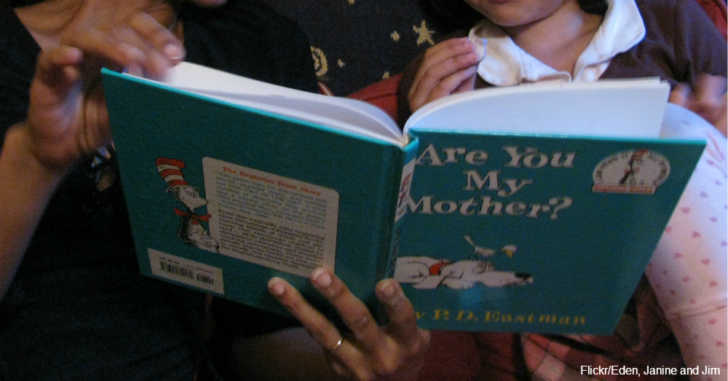Immigrant Moms Learn the Importance of Reading Thanks to a Book Club
Book clubs like this offer one way to improve the literacy of students in inner-city schools.
How many of us got the reading bug from our parents? I know it was my mom and grandma who taught and encouraged me to read when I struggled with it at first, and now I can’t keep my nose out of a book long enough to thank them for their good deed!
So what happens when parents don’t like to read? Or worse, when they’re not able to read? Immigrant mothers often have this problem. Some of them are having enough trouble just learning to speak English, and many work long hours and have many children to care for. Who has time for reading? And when parents don’t encourage reading, what happens to their children?
A book club for immigrant moms at Bravo Medical Magnet School in Los Angeles is helping encourage reading among students. Principal Maria Torres-Flores founded the club when she realized that parents who do not read do not encourage their children to read. Apparently the approach is effective, as the school has almost twice the state average for the number of low-income students passing the English proficiency test.

Before joining the club, some of the moms did not understand the importance of reading. Some had never read a book and looked at reading as a way their children were attempting to get out of daily chores. Now they are reading and discussing books such as Don Quixote, The Diary of a Young Girl, and Steve Jobs.
The reaction among members of the club is positive. Working parents sometimes have to rearrange schedules, and some members take a bus ride that is over an hour to make each meeting. The club offers books in Spanish and English and is improving literacy among parents and students. Participants in the group are more likely to take leadership roles in other parent-lead organizations at the school as well.

The book club helps its members build a library of books in their own homes, something that is uncommon among many immigrants. Access to books in the home is an important way to improve a child’s reading performance. While there are some critics who claim the program should begin earlier, its effects have rippled to help younger siblings in some cases.
SKM: below-content placeholderWhizzco for CRH

